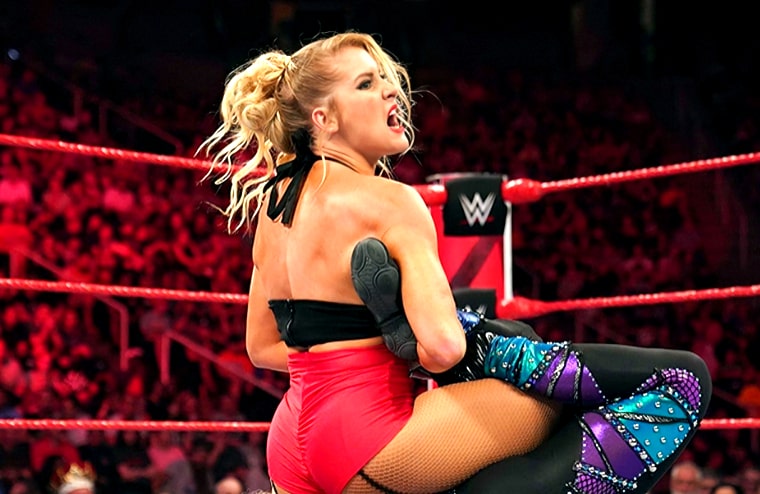Here in the 21st Century, the Pro Wrestling world is filled with vibrant characters, compelling storylines, and outrageous matches. But, did you know that there was a short-lived promotion in wrestling’s recent history that took its inspiration from the days of the Old West? The American Frontier has, of course, had a lasting impact on pop culture. The legend of the Wild West lives on in everything from themed slots games to dining experiences. And, for a short time back in Dallas/Fort Worth in the 1980s, it even made an appearance in the wrestling ring.
In the 1970s and 80s, Ken Mantell was a pro wrestling star. He competed throughout the National Wrestling Alliance for over two decades. He cinched numerous titles and trophies, including the NWA World Junior Heavyweight Championship (against Danny Hodge). He also won the 1975 NWA World Tag Team Championship, where he was partnered with Ron Bass. As the years progressed, Mantell turned his eye to the business behind the sport. Retiring from competing in the ring, he took to working as a booker for Von Erich’sErich’s World Class Championship Wrestling like a duck to water. Helping guide the promotion into its peak years, he caught the attention of a certain Bill Watts, who was harboring aspirations to become the Mid-South’sMid-South’s answer to Vince McMahon.

Not content with his successful local promotion, Bill Watts had his sights set on national expansion. To do this, he needed a well-regarded booker to lure in world-class talent, and who better than Mantell to do the job? After all, the former wrestler had done a stellar job keeping the books of World Class filled to the brim with the best wrestlers of the day. And so it was that the pair teamed up to launch Watts’ former Mid-South Promotion as the Universal Wrestling Federation (UWF) in 1986. Again, the businessman’s intuition about Mantell’s pulling power paid off. It wouldn’t be long till a host of former WCCW wrestlers came on board, including Chris Adams, Skandor Akbar, Kamala, Missy Hyatt, One Man Gang, and the Fabulous Freebirds. An overnight success, if ever there was one, the UWF secured a timely syndication deal that saw the promotion air two weekly TV shows across the US. Earning strong ratings and heaps of critical praise, it seemed the duo were on their way to making pro wrestling history.
However, just as quickly as the promotion established itself at the sport’s top flight, it began to fail. Despite all the positives the UWF had going for it, it simply couldn’t compete at the same level as the WWF and Jim Crocket Promotion – both of which had stronger distributions, huge PPV events, and, particularly in the case of the WWF, several additional lucrative income streams. As a result, Watts decided to sell UWF to Crocket in April 1987, just 13 months after launching it. Although JCP kept the brand going until December of that year, playing out its established storylines and even running the three UWF championships, it was time for Mantell to depart.
Not quite as done with fighting as he’d first assumed, Mantell realized that if he wanted to both perform as a wrestler and reap the rewards as a businessman, he’d need to set up his own promotion. And so he did, in Dallas/Fort Worth. An actual outlaw promotion, Mantell launched his Wild West Wrestling in the summer of 1987. He used the promotion as a launchpad to reignite his career as a wrestler, participating in several notable feuds, including Cocoa Samoa. Live matches took place at Fort Worth’s Billy Bob Texas and – just like when Mantell joined UWF – well-regarded fighters clamored to be on his books. Wild West had the likes of Wild Bill Irwin, Fabulous Lance (aka Lance Von Erich), Iceman Parsons, Buddy Roberts, Jack Victory, and Iceman Parsons jumping on board. Like other promotions at the time, Mantell secured a syndicate deal that produced around 25-30 TV shows broadcast during the summer and fall of 87. It immediately established itself as a rival to World Class, so much so that it was absorbed into the older promotion within a matter of months.
Mantell was given the keys to World Class when a disillusioned Fritz Von Erich put the business up for sale. With the two promotions now one, the upstart was kept on as a “B-show,” with its tapings complimenting the more mainstream shows broadcast by World Class on ESPN. Pretty soon, however, the tapings began to thin out, and Wild West Wrestling quietly – and sadly – slipped away into obscurity.
- Chris Jericho Keeps Fans Intrigued By The Learning Tree - June 21, 2024
- The Fundamental Principles Of Wrestling Betting To Increase The Probability Of Winning - May 20, 2024
- Non-Wrestlers Who Would Excel In The Ring - May 20, 2024




